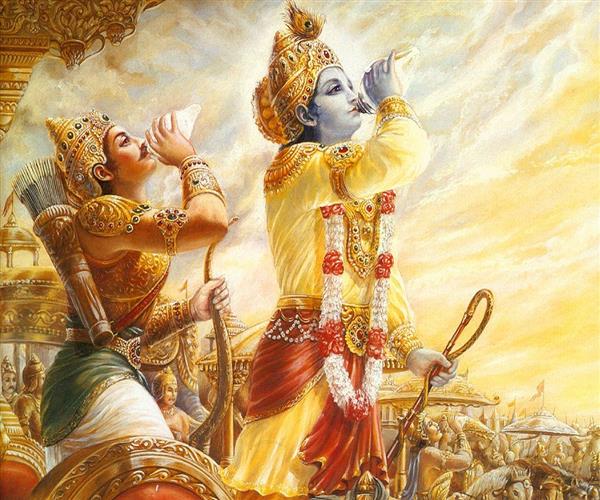In Hinduism, the concept of Shruti holds a significant position in the understanding and interpretation of sacred scriptures. Shruti refers to the knowledge that is considered to be heard or revealed by ancient sages and seers. It is believed to be of divine origin, transmitted through generations via oral tradition. The Vedas, the oldest and most revered texts in Hinduism, are regarded as the primary source of Shruti. The connection between Shruti and the Vedas is inseparable, as the Vedas themselves are considered Shruti literature, embodying eternal truths and divine revelations.

The Divine Revelation:
Shruti literature is considered to be a direct revelation from the Divine. According to Hindu belief, ancient seers or rishis, in deep states of meditation and spiritual communion, heard the divine sounds and intonations of the eternal truths. These revelations were then passed down through an unbroken oral tradition from one generation to the next. The Vedas, as the embodiment of Shruti, are seen as a divine communication, a timeless wisdom revealed for the benefit of humanity.
Eternal and Authoritative Nature:
Shruti is considered eternal and uncreated, existing beyond the boundaries of time and space. It is believed to be a reflection of the cosmic order and universal truths that transcend human limitations. As the Vedas are the primary form of Shruti, they are regarded as authoritative and infallible. The eternal nature of Shruti implies that it is beyond human manipulation and remains unchanged over time, providing a stable foundation of spiritual guidance and wisdom.
Oral Tradition and Preservation:
The transmission of Shruti knowledge has traditionally relied on an oral tradition passed down from teacher to student. The ancient seers meticulously memorized and recited the Vedas, ensuring the preservation of the original texts. The oral tradition played a crucial role in maintaining the purity and authenticity of the Shruti literature, as even the slightest deviations in pronunciation or intonation were considered detrimental to the integrity of the divine revelation. This meticulous preservation over generations has allowed the Vedas to retain their pristine form.
Authority and Interpretation:
Shruti, including the Vedas, is considered the highest authority in Hinduism. Its teachings and principles form the foundation of religious and spiritual practices. The interpretation of Shruti texts, particularly the Vedas, has been entrusted to learned scholars and spiritual guides who possess a deep understanding of the ancient language, symbolism, and metaphysics. The interpretations aim to reveal the profound meanings embedded within the texts and their relevance to the spiritual and practical aspects of life.
Source of Knowledge and Spiritual Realization:
Shruti, as embodied in the Vedas, serves as a wellspring of knowledge and spiritual insight. It provides guidance on a wide range of subjects, including rituals, ethical conduct, philosophy, cosmology, and meditation practices. The profound wisdom contained within Shruti literature is considered a pathway to spiritual realization and liberation (moksha). By delving into the depths of Shruti, seekers strive to attain a deeper understanding of the divine truths and their own true nature.